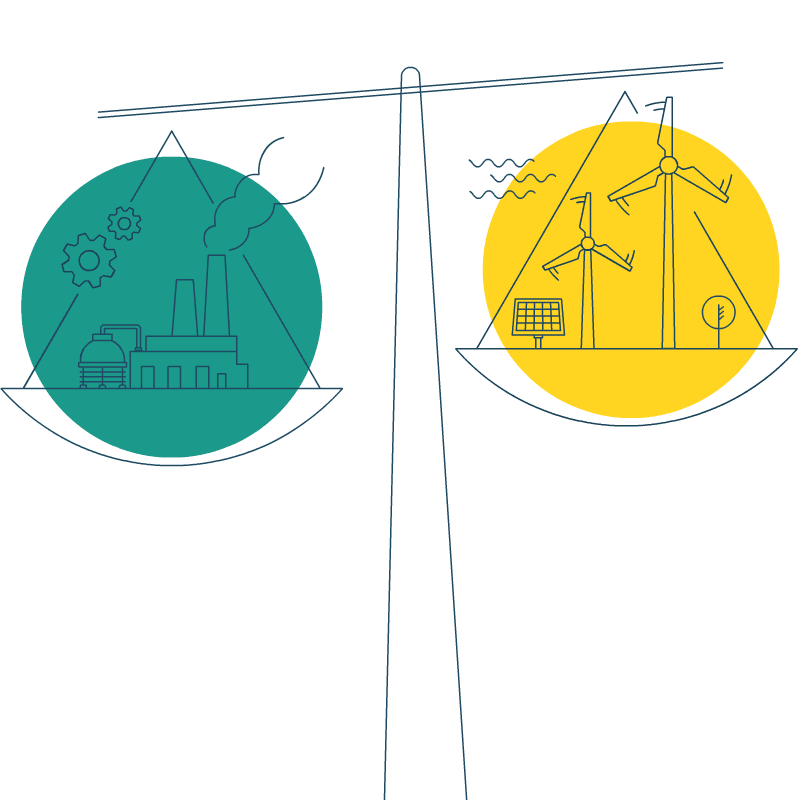What is Demand Response and how will it benefit Greece?

The role of a power system is to generate and distribute energy. While this might seem very straightforward, in reality those systems are extremely complex. Fluctuations in consumption and production of energy not only influence the frequency of the grid – which has to be kept at 50Hz, but also have an impact on the wholesale costs of energy in the long run, making them uncertain.
Balancing services help maintain grid frequency and enable the efficient handling of imbalances or congestion. When looking at balancing services, many companies around Europe are turning towards Demand Response to lower the costs of their energy bills, have more insights into their energy usage and at the same time positively contribute to a more sustainable and reliable power grid.
What exactly is Demand Response?
Demand response is a change in electricity consumption by end-users (such as commercial and industrial businesses) to help balance the electricity grid during peak production or peak consumption times.
It is designed to induce lower electricity use at times of high prices (market signal) or when system reliability is jeopardised (TSO signal). For example, when electricity demand rises, participating end-users are given a signal to reduce their usage at a given moment to restore the balance of the grid.
Without balancing services, such as demand response, power systems are vulnerable to fluctuations in supply and demand. That can lead to issues such as power outages and blackouts. Those are not only dangerous to the whole system but can also severely damage the equipment on the production sites, and harm the processes, when not having taken proper precautions.
Historically, the responsibility to balance the electricity grid was on the supply side, mainly large traditional, coal-fueled power plants. To always be prepared for a fluctuation in supply and demand, traditional power plants operate at a lowered capacity, leaving room for unexpected changes. That, however, leads to lower efficiency of their production, high emissions, and increasing prices for electricity.
Instead of having large power plants being paid to run at, for example 80% to adjust production in case of an imbalance, it is possible, with the help of an aggregator, to group assets across industries together, to adjust their consumption in case of imbalances.
Do you want to learn more about Demand Response?
Our team will be happy to answer any questions. Contact our energy specialist in Greece. We will get back to you soon.

Kostas
Athanasopoulos
Commercial Manager
What does more Demand Response mean for the electricity grid in Greece?
Lower costs for energy thanks to DR participation
One of the main benefits of Demand Response is the reduction of energy bills. Given the positive impact on the reliability of the grid and the stabilisation and restoration of the right frequency, utilities and System Operators incentivise participation in DR and provide end-users and industrial and commercial businesses with financial benefits. Especially in Greece, where energy prices are high, participating in Demand response programs can lead to substantial energy bill savings.
Higher reliability of the grid
Reliability benefits are the operational security and adequacy savings that result because demand response lowers the likelihood and consequences of forced and unplanned outages that impose financial costs and inconvenience on customers. Less demand means less stress on the system, and with that, fewer unexpected failures.
Positive impact on the wholesale market prices
Market-wide financial benefits are the lower wholesale market prices that result because demand response averts the need to use the most costly-to-run power plants during periods of otherwise high demand, driving production costs and prices down for all wholesale electricity purchasers. Over the longer term, sustained demand response lowers aggregate system capacity requirements, allowing load-serving entities (utilities and other retail suppliers) to purchase or build less new capacity. Eventually these savings may be passed onto most retail customers as bill savings.
Although the solution might sound novel, many countries across Europe are already benefiting from the successful implementation of Demand Response programs. With the right tools and expert knowledge, Demand Response could prove a strong asset for the energy market of Greece. It would not only lead to a higher reliability of the grid, but also to a decrease of energy prices over the long term. Moreover, it would create extra energy savings for Industrial and Commercial users who will participate in the balancing markets, further improving their competitiveness.
Sympower is a global flexibility services provider that participates in electricity networks around the world.
We serve as a demand side aggregator for ancillary services to TSOs using commercial and industrial consumers, energy asset owners and other energy stakeholders, enabling them to participate in electricity markets and generate new revenue streams.
We believe flexibility is key to powering a successful energy transition and achieving a 100% renewable energy system.
© 2023 Sympower